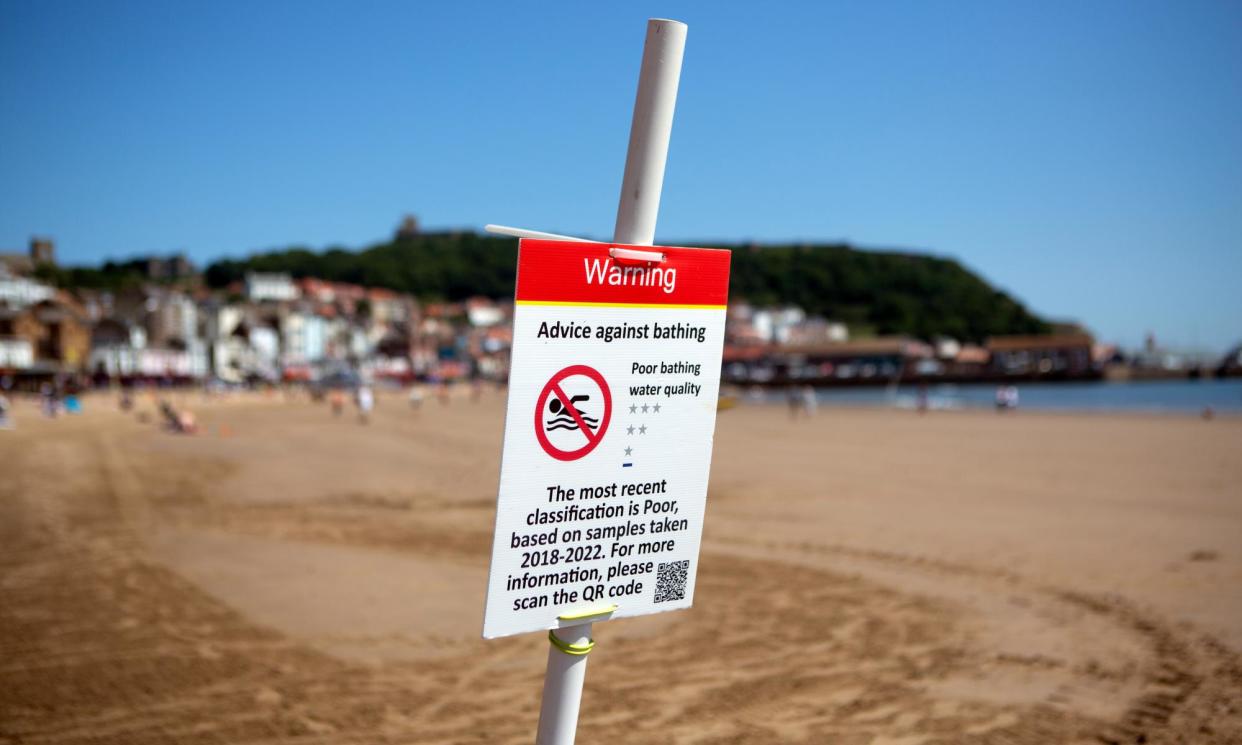Reducing sewage in rivers and seas is public health priority, says Chris Whitty

Public health must be central to future investment in a new wastewater system to protect people from waterborne diseases, the chief medical officer for England, Prof Chris Whitty, has said.
Reducing people’s risk of coming into contact with human faecal pathogens in untreated and treated sewage discharged into rivers and coastal waters must be a priority, a report by the Royal Academy of Engineering said.
Whitty, who commissioned the report, said the creation of a wastewater system in the 19th century had ended the cholera outbreaks and was still one of the great triumphs of public health.
There needed to be a similar focus today on the need to protect public health in the management of wastewater systems, alongside protecting the environment and ensuring affordability, he said.
“Public waterways are a great resource enjoyed by many children and adults and can have a significant positive impact on our health. Minimising human faecal organisms in fresh water is a public health priority as well as an environmental one,” said Whitty.
“Whilst there will always be challenges with the efficient management of sewers and sewage treatment works, this report provides clear technical options for how this can realistically be achieved.”
He spoke as South West Water faced criticism for an outbreak of diarrhoea in Brixham, south Devon, and surrounding areas, caused by cryptosporidiosis, a waterborne disease caused by a microscopic parasite in water systems. More than 14,000 households were told to boil their tap water after a faulty valve allowed the parasite to enter the water system.
The report was published as sewage alerts were issued for beaches in England and Wales on the first weekend of the official bathing season.
It is the first time a comprehensive analysis has been undertaken to examine and reduce public health risks associated with the use of rivers and seas. It highlighted the lack of investment by water companies in maintaining assets within the sewage system.
The report called for the government to accelerate the rollout of continuous water quality monitoring for microbiological faecal organisms, and for a review of bathing water regulations to better protect the public.
“The deterioration of wastewater assets, growing urbanisation and forecasts for more frequent and intense rainfall events due to climate change will mean increasing pressure is put on our ageing wastewater system,” the report said.
While much focus has been given to untreated sewage discharges from storm overflows, treated sewage is continuously discharged into rivers and seas and still contains high numbers of faecal organisms, even after treatment. “We know that public health risks are increased by exposure to high concentrations of faecal organisms,” the report said. There is also significant concern about the development of antimicrobial resistance, particularly in human faecal pathogens.
The report calls for short- and long-term measures to reduce the risk of ill-health from contact with wastewater, including untreated sewage released via storm overflows and effluent discharged into rivers and seas after treatment by water companies.
It wants to see a review of bathing water regulations to ensure that the necessary testing for microbiological water quality is carried out, to make sure protections are proportionate to the public health risk.
The government last week announced 27 new bathing water areas in England, where the water will be tested from May to September. Giving waterways bathing status means the Environment Agency has to test them for pollution during the summer months, putting pressure on water companies to stop dumping sewage in them. Bathing status is no guarantee the waters are safe to swim in, however. Last year, testing by the Environment Agency found that England’s three river swimming areas all had “poor” status due to pollution.
The report says incentives should be offered to remove paved-over surfaces, such as patios or paved gardens, and the use of sustainable drainage schemes and other urban greening initiatives. These measures reduce the amount of runoff from towns and cities, which reduces pressure on treatment works, and can cut the amount of sewage discharged into waterways.
It also calls for the creation of a wastewater champion to enhance the infrastructure in England.
Barbara Evans, a professor of public health engineering at the University of Leeds, said: “Investments in sanitation require national vision and leadership; 150 years ago, the UK committed to eliminating cholera and made the necessary huge investments in our wastewater system; we have reaped the benefit of that vision for our whole lives, and we probably haven’t been sufficiently aware of it.
“That investment is reaching the end of its life, and we owe it to our children and our grandchildren to make a new commitment and create a vision of a new wastewater system fit for the future.”
Charles Watson, chair and founder of River Action, said: “The lack of any meaningful response from government - whilst record volumes of raw sewage are dumped into rivers, river users across the country get seriously ill and whole towns are forced to boil their drinking water – has been deeply frustrating. The publication of this report is therefore a much welcome development and provides a hugely authoritative new voice in calling for the actions so urgently needed to deal with the country’s disgusting sewage crisis.”


